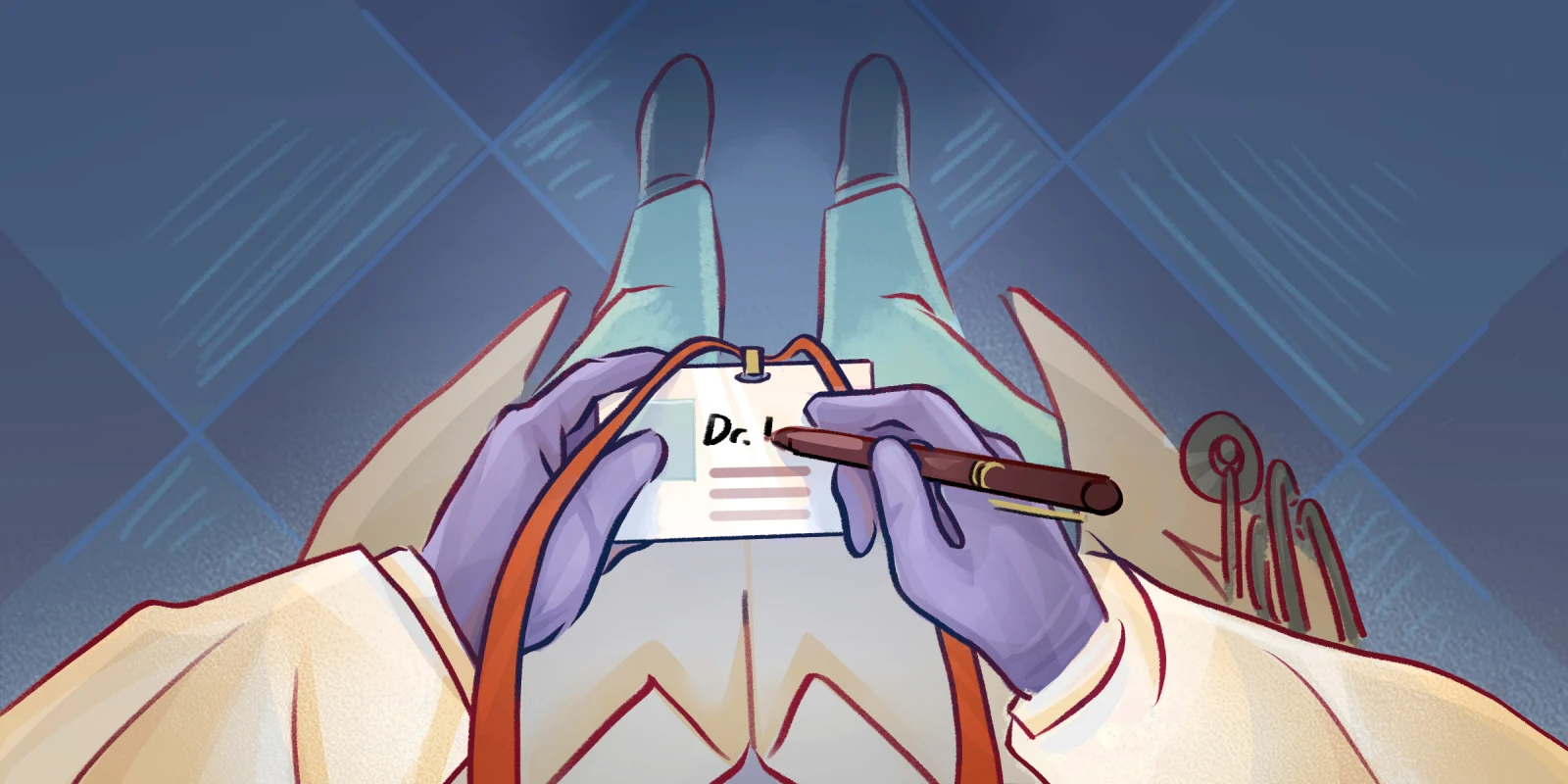“Hi, my name is Nishant, I am a resident on the team. Nice to meet you.”
It was early during my first year out of medical school, and I was uncomfortable introducing myself as a doctor. Like an oversized white coat, the title did not fit just yet. Using my first name felt easier. I hoped the informality would help place the family at ease.
The attending pediatrician I was working with kindly challenged me when we left the room.
“You know, not all of your colleagues can get away with that.”
I replayed that interaction in my head, looking for what I had done wrong.
“As a male resident, you hold privileges that women don’t. The patients assume you are their doctor.”
She was absolutely correct.
Even without introducing myself as Dr. Pandya, patients are more likely to assume that I, a cisgender man, am their doctor than they do women who are my colleagues and superiors.
A recent study surveying 4,000 people found that only 5% of respondents imagined their doctor to be a woman, despite women making up nearly half of the physician force. These biases set root early, as that same study found 70% of school-age children believed a surgeon was likely to be men.
Sexism and gender biases remain part of medical culture and training experiences for students, residents, and all physicians. As a privileged group already assumed to be doctors, men can become stronger allies and help create a more equitable workplace culture by consistently introducing themselves to patients as Dr. “Last Name.”
This simple action can help create a more level playing field for everyone on the team to introduce themselves as they prefer. When a male physician introduces himself by his first name, it can leave women on the team with a less than ideal decision: use their actual title and appear less casual or approachable than their male colleague or match the prior introduction by using their first name and risk being regarded as the patient’s nurse.
Rooted in unfounded gender biases, not only are men more likely to be recognized as a patient’s doctor but they also will avoid further penalization on their attire.
An article in the Journal of Women’s Health analyzed patient interactions involving doctors and nurses who are men and women. Results showed over 30% of patients falsely assumed their doctor who was a woman was their nurse. A JAMA study similarly found that among surgeons, women wearing scrubs were 20% less likely to be identified as the doctor. Furthermore, patients considered women wearing scrubs as less professional and believed it was inappropriate for women to not wear white coats.
From the repeated need to clarify a job title, to the judgment faced for standard medical attire, to the more frequent experience of interruptions, and the gender bias encountered in performance evaluation, it is unsurprising that over 70% of women physicians report some type of gender discrimination and experience a higher burnout rate when compared to their male counterparts.
I understand that introducing myself as Dr. Pandya will not undo deeply rooted sexism that persists in today’s medical culture. I know that I will not individually solve gender bias. But we are not helpless.
One challenge has changed the way I introduce myself multiple times per day. This has grown to now ensuring I can correctly pronounce my physician colleagues’ last names should I need to refer to them in a patient room.
Culture does not create people. We are efficacious, and people create the culture we live and work in. Male physicians bear a responsibility to not sit on their unearned privilege but take action toward a more equitable medical culture for the present and future. No individual action will do this, but my challenge for physicians who are men is to start consistently introducing themselves as Dr. “Last Name” as a start.
What action can you take to make medical culture more equitable? Share in the comments.
Nishant Pandya is a third-year pediatrics resident at Yale pursuing a career in primary care pediatrics.
Illustration by April Brust






